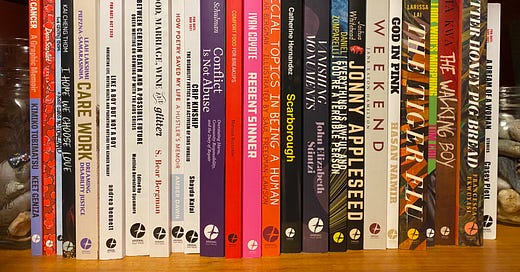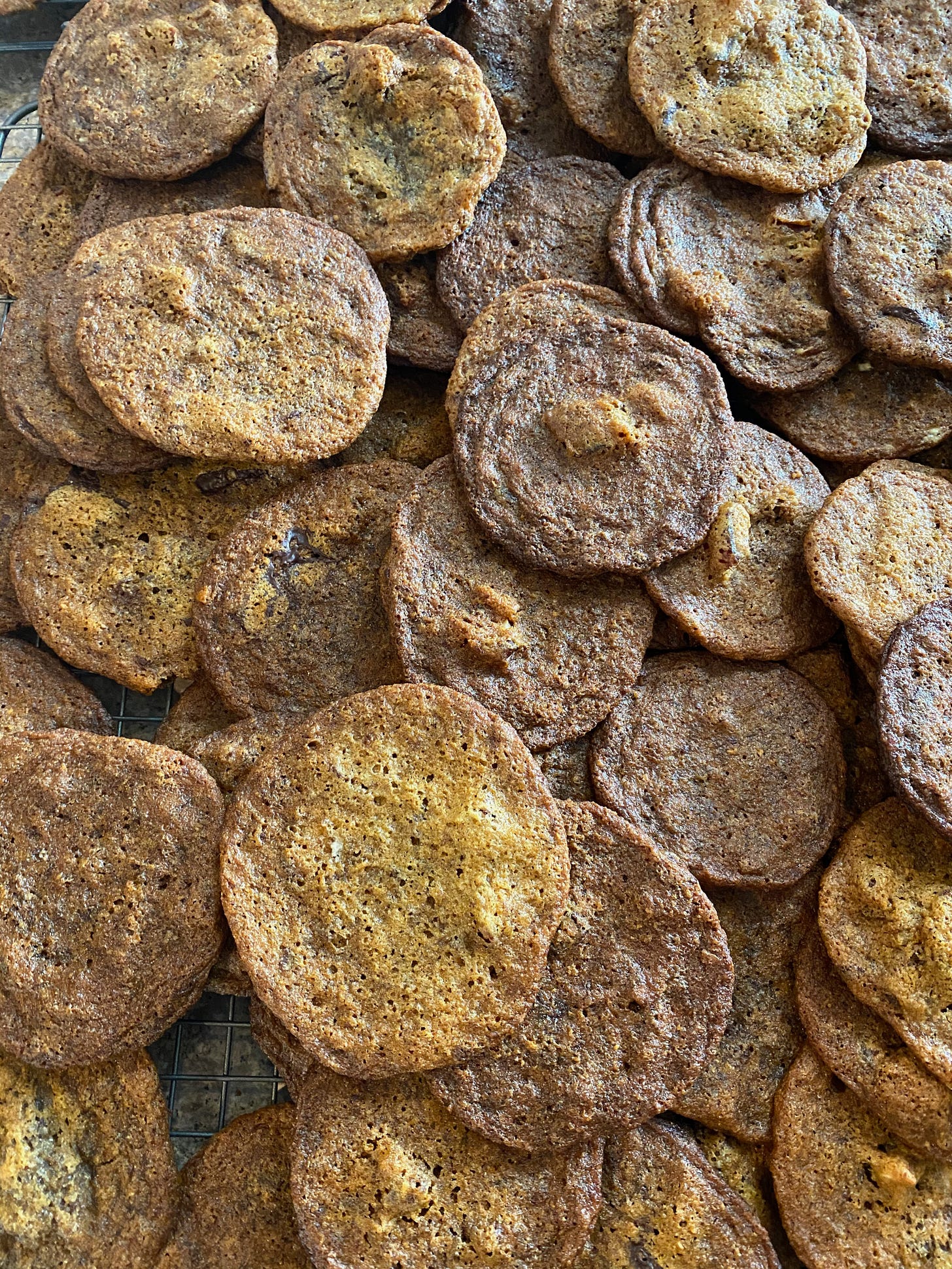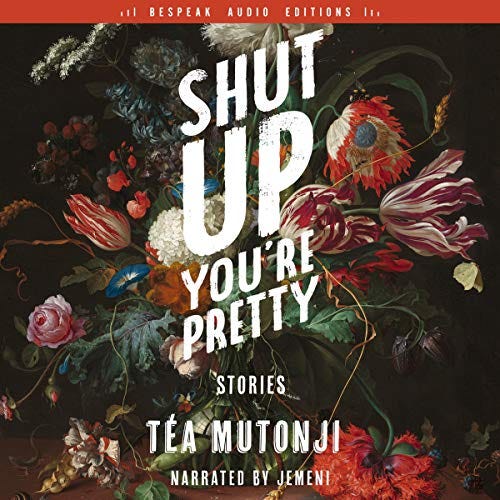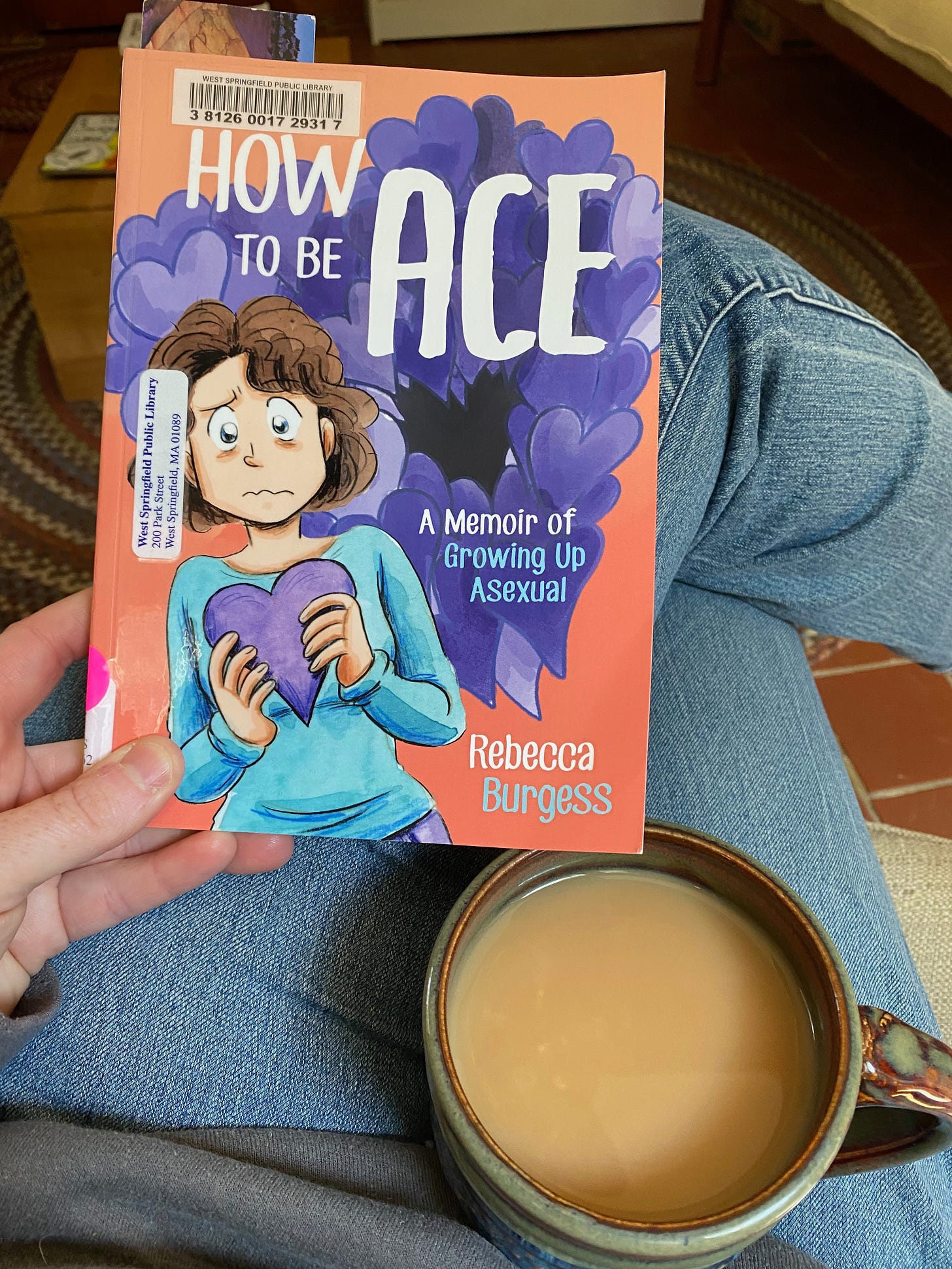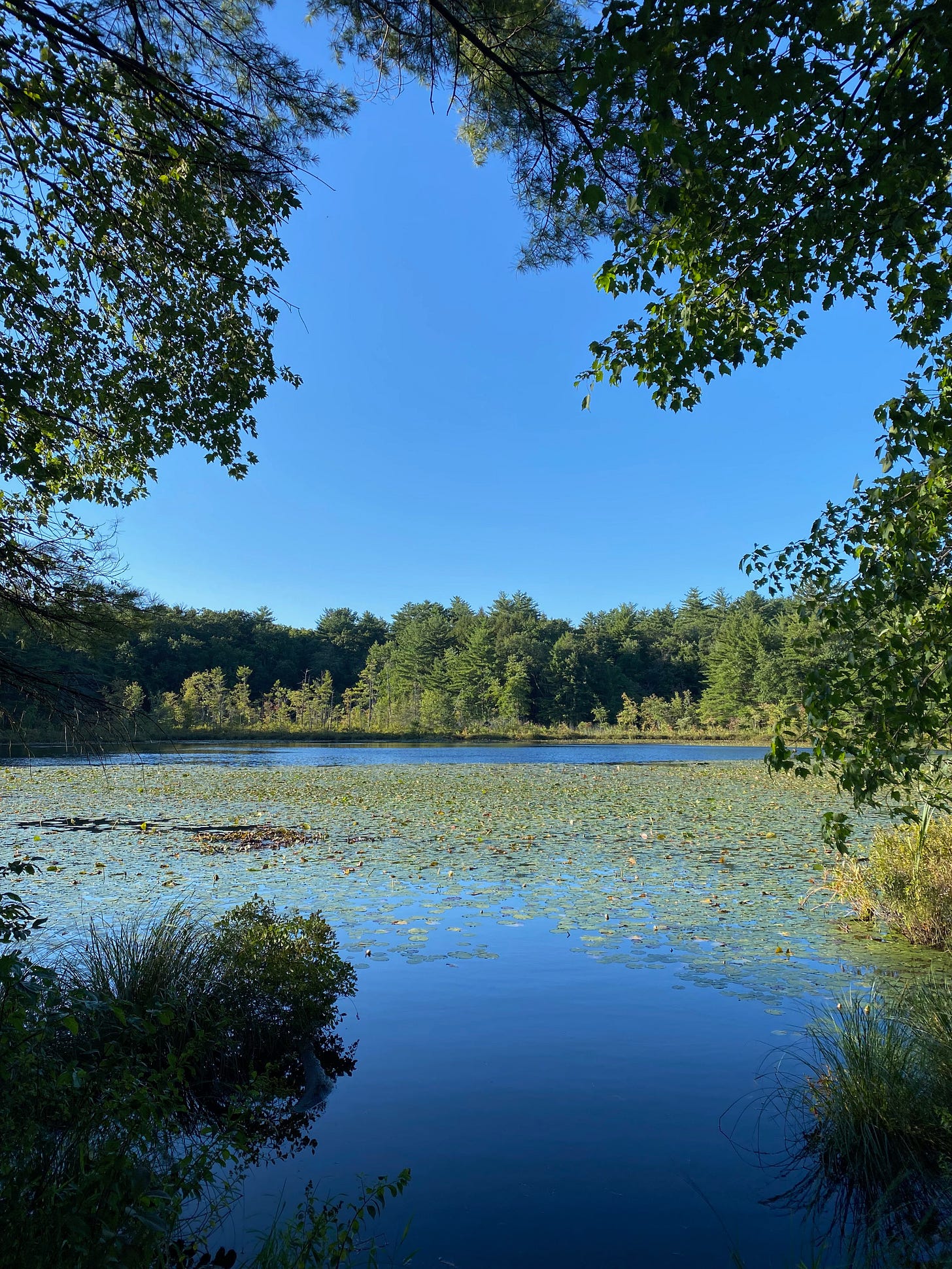Volume 1, No. 26: Queer & Trans Magic Part 1 (Arsenal Pulp Press) + Date, Halvah & Chocolate Chunk Cookies
Greetings, book people! Yesterday was Rosh Hashanah, and I drove two hours to have dinner with my family in my brother’s backyard. I hadn’t seen some of my cousins in two years, so it was a true delight, and definitely worth the drive. Shanah Tovah! May it be a sweet new year.
I’m just going to go ahead and say it: this’s week’s issue is a love letter to Arsenal Pulp Press. If you’ve been reading this newsletter for a while, you already know how much I love Arsenal Pulp. So forgive me while I wax poetic once again. Arsenal Pulp is an indie publisher based in Vancouver. They publish a ton of fantastic books across a range of genres, with a focus on LGBTQIA+ and BIPOC literature.
I love this little press so much, I made a special shelf for all the APP books I own:
I have yet to read an Arsenal Pulp title I don’t love. I’ve become a more adventurous reader thanks to them, reading books I know nothing about simply because I trust them put out work that moves, challenges, and delights me. I’ve discovered several new favorites this way (such as Weekend and Care Work).
In the last few years, as my professional life has become more centered around books, . it sometimes feels like it’s hard to be surprised. I’m constantly inundated with buzzy titles and new releases. I love talking about books all day, but it can also be hard to keep up. Falling in love with an indie press has taught me how to step back from the book world and focus on why I’m here in the first place: because I love books. I don’t seek out reviews of upcoming Arsenal Pulp titles, or pick up their backlist books because I see people raving about them on Instagram. (Though I do see people doing just that, and I do, too!) I read their books voraciously because they are always brilliant, because they’re publishing exactly what I love to read. It’s freeing.
So, this week, I’m talking about three Arsenal Pulp titles I’ve read and loved this year. They’re all by trans authors, and they represent the kind of queer magic that Arsenal Pulp has brought into my life.
By the way, Arsenal Pulp is currently having a sale—everything is 25% off with free shipping! You can stock up on some amazing queer books and support an incredible indie press at the same time! I made a handy list of some my favorites (all the books pictured in the photo above).
The Books
Backlist: Rebent Sinner by Ivan E. Coyote (Memoir, 2019)
I’ve been a fan of Ivan Coyote’s work for a while. They have an extensive backlist that I’m slowly working my way through, and I their books never fail to delight me. They return to many of the same themes in their books (at least, the ones I’ve read), but always with insight, humor, and heart. It never gets boring. Coyote’s style is hard to describe—their writing is so warm, open, and honest. It’s friendly, but not in a nice, polite way. They are a truth-teller. Their words are unadorned and moving. They’re also a musician, performer, and live storyteller, and all of that comes through in their published books. It’s like sitting down with an old friend, one who cares about you but isn’t willing to let you off the hook.
Rebent Sinner is a collection of moments and memories. Some sections are only a few lines; others are longer essays. I love this blend of styles, which gives the book a sense of intimacy. Coyote knows exactly how to tell each of their stories: some requite many pages of lyrical prose; others just a paragraph. The form always fits the subject matter perfectly. They write about life as a touring musician and performer, about the challenges of being an advocate, about their decades of activism. Much of the book is about being trans and nonbinary, and their changing relationship to their gender and their body. There is a lot of trans joy in this book, small moments of connection and celebration between trans people.
Coyote is so good at thoughtfully and vividly describing people and experiences. Everyone in this book comes alive. Some of my favorite pieces are the short ones that describe memorable interactions with strangers, family, lovers, friends: ordinary, funny, enraging, exhausting, strange. Here’s an example:
Today, at nine in the morning, I saw a woman walking her chihuahua in a bedazzled housecoat and furry high heels. And her nightgown. Drinking her coffee and smoking a cigarette. I salute her.
There’s so much exuberance in this! Though the book deals with plenty of hefty emotional territory, from complicated family relationships to the intensity of the anti-bullying work Coyote does in schools, there’s this thread of simple delight running through the whole thing. It’s such a pleasure to look at the world through Coyote’s eyes, to get to witness the things they find moving, humbling, hilarious. This, I think, is what makes their work so compelling. There’s not a lot of explanation and exposition. It’s mostly “here’s what I saw” and “here’s how I feel” — and that’s what most of our lives are made of.
I always feel so much better about the world after reading Coyote’s work. It’s not that they ignore the hard stuff. It’s that they make space for the silly alongside the heartbreaking. In these pieces about travel, pronouns, queer elders, rural Canada, writing, music, and so much more, Coyote tells stories about the world as it is—imperfect and incredible.
I mean, how can you not fall in love with a book with a passage like this?
I saw “man candles” in a store the other day. They smelled like misogyny and unshed tears. Just kidding. They smelled like cedar and smoke, but I would never buy them.
Frontlist: How to Fail as a Popstar by Vivek Shraya (Autobiographical Play)
One thing I’ve been really into recently is translation across art forms. I’ve been thinking a lot about what it means to experience art in ways it wasn’t originally intended to be experienced. There’s magic, I think, in listening to a graphic novel on audio, or reading a play. It reminds me that art is malleable. There’s always more than one way to understand something, to enter a piece a piece of art.
So I was super to pick up this written version of Vivek Shraya’s one-woman show about her experiences as a trans brown woman in the music industry. Shraya is a writer, musician, and multimedia artist, and this play blends all of her talents. It’s funny and observant and honest, with just a touch of the strange. It also offers a unique and refreshing take on failure.
The title sums up the story nicely. It’s an autobiographical play about how to fail as a popstar. Shraya recounts the years she spent trying to become a famous musician. She writes about her lifelong love of music, her early successes, the challenges she faced as a queer, trans artist, the betrayals she encountered, the mistakes she made, and people in the music industry who used her for their own gain. The play tracks her journey toward a goal, that, ultimately, she doesn’t achieve.
Most stories with this kind of trajectory offer some kind of lesson. Shraya doesn’t. She’s insistent that she failed at what she set out to do, and she’s interested in not only why that happened, but why we’re so reluctant to talk about failure.
Naming failure is uncomfortable. This might be why someone naming their failure is often met with a well-intentioned assertion: “You haven’t failed! Look at all the amazing things you’ve done!”
But I have failed at becoming a popstar.
This is such a liberating perspective. Capitalism would have us believe that failure is tied to self-worth, that to fail at something means we are a failure. Shraya is reclaiming failure with this play. She owns it. She’s giving herself—and, by extension, her readers—permission to fail. She explores the many interlocking systems of oppression that played a part in her own failure to become a popstar. She’s critical and thoughtful about the music industry, both its shortcomings and its strengths. All of it makes for an engaging, lively, entertaining, and often challenging play. But it’s the simple story at the heart of this work that makes it special. Failure is just failure. No more, no less. What a radical idea.
My favorite part of the play is a long section near the end where Shraya outlines the many reasons she failed to become a popstar. Each reason is just one sentence, and each sentence appears alone on a page, surrounded by white space. There are forty reasons. The play itself is only 100 pages, so these forty reasons make up half the book. A few of the reasons include:
“My parents are immigrants.”
“I don't have mass sex appeal.”
“I am brown.”
“I don’t drink.”
“I didn’t move to Paris.”
It’s impossible to do justice to how powerful this section is by simply listing a few of the reasons like this. They flow into each other. The list becomes a symphony, each item building on the previous one to tell a cohesive story about fame, power, race, ambition. There’s something overwhelming and intimating and painful about all the white space. It gives so much weight to each reason. The untold stories beneath a simple sentence like “I have chest hair” or “I was born in Edmonton” sit like ghosts on the page. I don’t know how Shraya performed this part of the play, but the impact of how it appears on the page is undeniable. I’d love to see the play preformed (especially all the songs that transcribed in the book), but I don’t feel like I need to. The translation from theatre to page is a brilliant one; it stands on its own.
Upcoming: A Dream of a Woman by Casey Plett (Short Stories, 9/21)
I enjoyed Casey Plett’s first novel, Little Fish, but I liked this book of short stories even more, which is saying a lot, because I’ll pick a novel over a short story collection 10 times out of 10.
This is a beautiful collection of stories about trans women and their complicated interior lives. I love a million things about it, but one that stands out is the richness of the relationships she depicts, especially relationships between trans women. The stories are about friends, roommates, lovers, ex-lovers. She examines each relationship in so much detail, in a way that makes the stories feel effortless.
I love books in which characters go through immense change. These characters certainly do that. Plett writes about women whose identities shift over time, who discover new things about their sexualities and desire as they age. One story follows a woman through an intense relationship, a move across country, a career change. Another is about a woman who returns home to the small town where she grew up, and the new relationships she develops there. But it’s not just the main characters who change—it’s also their relationships. Plett is so, so good at writing about these shifting relationships. Nothing is life is static, especially not relationships, and Plett captures all of their messy, painful movement.
The book also has a unique structure, something I've never encountered before. It’s a collection of stories, but some of them are broken up into sections. The longest story in the book, “Obsolution” is broken into five fragments. Each one feels whole, but they’re clearly part of a longer narrative. There is one other story that’s broken up this way, as well as several stand-alone stories. It’s such an interesting choice, and I think it’s part of the reason why this book feels like such an honest portrayal of life. The character’s lives keep on going, and we, as readers, get to dip in and out of them. The momentum is exquisite. I know I could read these stories again and again, discovering new layers in them each time. Plett’s characters, her settings, the situations she describes—everything is so vivid. But it’s vivid in an ordinary, unobtrusive way. There’s a quiet sureness in Plett’s writing.
It’s also full of so many passages that cut directly to the heart of something, in ways that are sometimes cynical, sometimes tender, sometimes funny, sometimes full of wisdom.
During a conversation about what gender is among several trans women, one of them says:
“It’s not a social construct and it’s not some innate magical thing. Gender’s just a way of getting something across. It’s a way of telling the world what you need. What you want. What you can’t handle.”
In another story, one character tells her friend: “After a certain age, bio family is is chosen family, too. You choose to keep it up—or you don’t. Both kinds can be unhealthy. Both kinds can be good.”
I’ll leave you with this gorgeous passage from “Obsolution”, in which a the main character contemplates who she is and where she comes from:
Vera realized her selfhood was sutured with these women form her life, that the only lie about the old him dying was that the skin of the person she’d stepped into wasn’t a cis lady she’d conjured from the air but a blanket fashioned from a kaleidoscope of them, shards and sparkles that lived in her like bacteria, like DNA, joyous and ailing, a double helix of protection and illness.
It’s out 9/21, and you can preorder it here.
The Bake
December in my house is known as Cookie Extravaganza; I bake thousands of cookies to mail to friends and family. I made these cookies for the first time during last year’s Cookie Extravaganza and fell in love, hard. They’re chewy and buttery and glorious, studded with pockets of dark chocolate, melty halvah, and sweet dates. It’s magic in a cookie. There’s nothing especially queer about them, but I am a queer baker. So, queer magic. Trust me.
Date, Halvah & Chocolate Chunk Cookies
Adapted from Food 52
Ingredients:
10 dates, pitted
50 grams (1/2 cup) toasted sugar (if you’re going to try toasted sugar, this is the recipe to use it in)
1 stick (8 Tbs, 113 grams) unsalted butter, at room temperature
1 egg
1 Tbs. vanilla
120 grams (1 cup) all-purpose flour
60 grams (1/2 cup) whole wheat pastry flour
2 tsp. baking soda
pinch salt
120 grams (4 ounces) bittersweet chocolate, roughly chopped
120 grams halvah, roughly crumbled
flaky sea salt (for topping)
black and white sesame seeds (for topping)
Line two baking sheets with parchment paper.
Roughly chop five of the dates and set aside. Place the five remaining dates in a bowl of water water and let stand for five minutes, then drain.
In a stand mixer fitted with the paddle attachment or with handheld beaters, cream the sugars, butter, and softened dates until combined. Add the egg and vanilla and mix to combine.
In a separate bowl, combine the flours, baking soda, and salt. Add the dry ingredients to the butter mixture and mix until just combined and no streaks of flour remain. Add the chocolate, chopped dates, and halvah and pulse a few times on low speed to gently combine. Be careful not to overmix; you don't want the halvah and dates to disappear completely into the batter.
Using a spoon or your hands, form the dough into small balls, rolling them smooth between your palms. These cookies do spread, so I usually use a half tablespoon as my guide. If you enjoy large cookies, use a tablespoon. Place the dough balls on a lined baking sheet, cover it with plastic wrap, and chill in the fridge while your oven preheats to 350.
Place the chilled cookies on another lined baking sheet, spacing them about 3 inches apart (remember, they spread). Sprinkle flaky salt and sesame seeds on top (or roll the cookies in a flaky salt/sesame combo for extra coverage). Bake for 15-18 minutes, until the tops are golden brown. They are deliciously chewy, so don't worry if the middles are still soft when you take them out. They’ll last for at least a week, and the unbaked dough balls freeze beautifully.
The Bowl & The Beat
The Bowl: Yet Another Roasted Veg Bowl, Early Fall Addition
When I don’t know what to make for dinner, I often poke around in my fridge and/or pantry, and throw whatever I find onto a baking tray. It almost always works. This veggie roast celebrates all the best flavors of early fall, with chickpeas and feta for extra pizzazz.
Cut a bunch of sweet peppers (3-4) into thick strips. Slice an onion or two. Husk six ears of corn (I always seem to have six around, but less is fine), and cut the kernels off the cobs. Halve several large handfuls of cherry tomatoes. Toss it all onto a baking tray along with a can of chickpeas and a whole bunch of crumbled feta. Toss with olive oil, salt, pepper, and the spices and/or herbs of your choice. Roast at 450 for 30-40 minutes, until the veggies are tender and the chickpeas nicely browned. I ate it with crispy eggplant (thinly slice eggplant, coat the slices with olive oil, toss with salt, pepper, and sesame seeds, roast for 20 minutes, flipping the slices halfway through), and a quick tahini-yogurt-parsley sauce (tahini, yogurt, a bit of olive oil, chopped parsley, pressed garlic, a splash of water to smooth it out).
The Beat: Shut Up You’re Pretty by Téa Mutonji, read by Jemeni
This isn’t my current listen, but it is one of the few Arsenal Pulp titles I’ve read on audio. It’s a collection of linked short stories about the same character, a Congolese woman living in Toronto. The stories explore her girlhood and young womanhood, touching on themes of friendship, family, cultural traditions, work, sex, and a lot more. It’s often bleak, but I appreciate how Mutonji simply presently moments as they happen, without trying to explain or define them. It gives the whole book a vital, lifelike urgency. The writing is lovely, also—sharp and crisp and detailed. Jemeni’s narration beautifully captures the straightforward music of the narrative.
The Bookshelf
The Library Shelf
Friends, I’m still working through my absurdly long backlog of poetry. This week’s library read is Oculus by Sally Wen Mao.
The Visual
Just for fun, here’s a photo of a lovely graphic memoir I recently read that I likely won’t get around to writing about here, but that I absolutely loved and recommend.
Around the Internet
I rounded up 13 queer books that will make you cry (happy tears). I wrote about the bookish rituals that keep me grounded. And I made a quiz that I hope will actually help you pick out your next anti-racist read.
Now Out
Hooray! The Charm Offensive by Alison Cochrun is now out! It’s a hug in the form of a book, and it’s hilarious and charming. Just in case you need that right now.
The Boost
My dear friends Annie and Cheryl, owners of River Queen Greens in New Orleans, complied a list of ways to directly support the Louisiana communities most affected by Hurricane Ida. They recommend donating to individual community leaders and mutual aid groups; you can view the list here.
As always, a little bit of beauty to send you on your way: I took a walk aronund one of my favorite ponds last week. I hadn't been there since early spring; it’s always a joy to return to a place and see how much the seasons have changed it.
And that’s it until next week. Catch you then!

